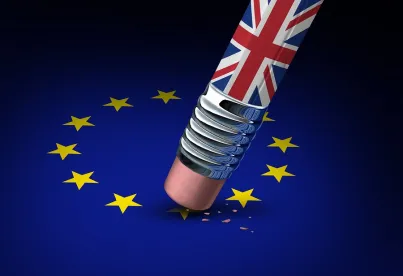When Parliament returned from the conference recess, many observers assumed MPs would get down to the business of amending (and passing) the European Union (Withdrawal) Bill. It had passed second reading on 11 September, and will now need to be considered by a committee of the whole House. This means all MPs will be able to contribute to a debate on its clauses, and to propose and vote on amendments to its content.
The legislation has a logical purpose. Following Article 50 having been invoked, it proposes: to repeal the 1972 European Communities Act, to end the jurisdiction of the European Court of Justice and to transpose EU legislation into UK law. This transposition is necessary as so much of our regulation and law is now European; we simply do not have time to re-write from scratch the necessary rules to manage our economy. It is far easier to copy across what already exists, and then amend it as and when the Government and Parliament find time.
Herein we find one of the more controversial aspects of the Bill. Ministers argue that, because of the sheer quantity of law that needs to be implemented in the time available, it is impractical for the whole of Parliament to consider it all. Instead the Bill gives the executive wide powers to write EU law into our domestic system. Specifically it proposes allowing Ministers to amend primary legislation through the use of secondary legislation, so called Henry VIII powers. In many cases amendment might be necessary, minor and technical to ensure things go smoothly. However, once Ministers are given the power to make changes, so the argument goes, they may stray beyond the technical and into the substantive.
Added to which the Government has tabled, and had passed, another recent rule change. Having lost its majority at the election in June, Parliament recently voted to nonetheless give MPs from the governing Party a majority on bill committees of an odd number, and parity on those of even number. This means Conservative MPs would very often make up the majority on those secondary legislation committees considering any amendments Conservative Ministers might propose.
The delay to tabling the EU (Withdrawal) Bill’s progress is likely because of the volume of amendments MPs have tabled. The opposition will have worked hard to find changes the Government would struggle to accept, but which some Conservatives MPs would be inclined to support. It will hope to chip away at the authority of Ministers and to undermine the Conservatives’ capacity to deliver business through the Commons. Working up detailed responses to all of this appears to be taking a little longer than the managers of Commons business perhaps hoped.
When the Bill does return the media will likely take great interest in the more contentious proposals, particularly those amendments immediately impacting on our relationship with the EU and the everyday lives of the public. In my time as an MP and Minister we often discussed and debated contentious things, rarely did we bring so many challenges together in one piece of legislation. The pressures on MPs and Ministers are of an order of magnitude greater than we have seen in recent times. With opinion on Brexit as divided as ever the possibility of falling back on gut political intuition has never presented such a mixed and confusing picture.
Those concerned to see current regulations reflected post Brexit, or hoping to amend such regulations before they come into UK law, might also want to keep an eye on the more constitutional arguments. We will need to see what happens to those Henry VIII clauses; I suspect they need to stay, but Parliament is likely to seek safeguards that could have unexpected results.



 />i
/>i

